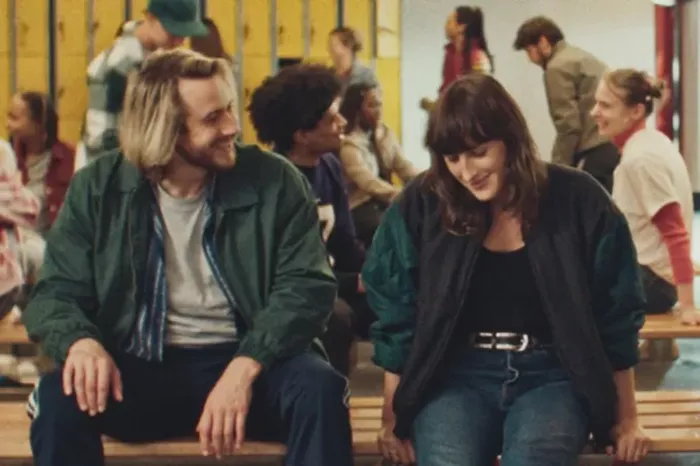The Cannes Film Festival is poised to be a stage for showcasing not just the art of cinema, but also the turmoil engulfing the world today. Over the next two weeks, the festival is set to highlight this global chaos, with films that will inevitably reflect the escalating disorder. Though many of the films screening were made before Donald Trump’s presidency, this is almost irrelevant—movies have long had the ability to predict the future. Cannes, this year, will likely be a reflection of the new, turbulent world order.
However, the festival presents a dual identity. Each year, it positions itself as a sanctuary—a luxurious oasis and a refuge from the storm, offering a space for cinema to retreat from the chaos of the world. This softer, more bourgeois aspect of the festival is clear in this year’s official poster. Rather than opting for an iconic scene from a modern film, the poster showcases a still from the 1966 movie A Man and a Woman, depicting the two main characters embracing on a beach. This nostalgic image evokes a sense of retreat from the modern, increasingly chaotic world, reminding audiences that Cannes is not always at the forefront of contemporary culture; sometimes, it seeks to provide solace through timeless beauty.
The opening film, One Day Off (original French title: L’Abandon), also embodies this tension. While not a groundbreaking cinematic achievement, the film immerses viewers in a nostalgic glow that resonates with audiences seeking warmth and comfort amidst the turbulence of today’s world. The film tells the story of Cecile (played by Juliette Armanet), a chef from Paris who gained fame through her appearances on Top Chef. In her quiet, yet opulent kitchen, Cecile is preparing to launch a new flagship restaurant, but her life is thrown into disarray when she discovers she is pregnant. The father of her child is her cooking partner, and they are yet to decide on a signature dish for their new venture.
The film has a dreamy, almost surreal atmosphere that occasionally brings to mind the works of 1980s French cinema, particularly those of Nathalie Baye. It blends elements of modern and nostalgic storytelling, mixing a realist musical with gentle, everyday moments that are infused with emotion and melancholy. Directed and co-written by Émilie Bonin, One Day Off offers a blend of quiet emotion and subtle transformation, capturing the feeling of returning to one’s roots—though, in Cecile’s case, her roots do not seem to inspire much change.
Bonin, whose name might evoke the last waves of French cinema that made a splash internationally, crafts a film that leans heavily on the emotional shifts of its lead character. Cecile returns to her hometown to help care for her ailing father, while confronting her own life choices. She reconnects with old friends, including Raphael (played by Bastien Bouillon), and the tension between them hints at unresolved feelings. However, as the story unfolds, Cecile’s journey feels more like a return to a place of comfort rather than a transformative experience.
Despite its warm, nostalgic appeal, One Day Off lacks the emotional depth to deliver a truly profound message. While the film invites viewers to reflect on the possibility of personal growth and change, Cecile’s journey from one place of self-realization to another feels somewhat superficial. She returns to her childhood home, interacts with her family and old friends, but the process of emotional transformation is largely absent. The film seems to suggest that Cecile, as an individual, is incapable of change, leaving the audience to ponder the meaning of her journey.
The film’s tone and pacing might remind some of the cinéma vérité style of French filmmaking, characterized by a documentary-like approach to realism. Armanet, a popular French singer making her film debut, delivers a performance reminiscent of Meryl Streep’s early work—intelligent, cautious, and attuned to the nuances of the character’s emotions. Yet, One Day Off ultimately leaves the audience with a bittersweet sense of longing, questioning whether Cecile’s life and choices will ever evolve beyond her static, self-imposed limitations.
In a world dominated by global crises and rising uncertainties, the Cannes Film Festival’s 2025 edition serves as both a mirror to the world’s turmoil and a haven for those seeking respite through art. Through films like One Day Off, the festival continues to explore the delicate balance between comfort and transformation, offering audiences a chance to reflect on both the chaos of the world and the personal struggles that shape our lives.
Related Topics
- “Wicked“ is the Highest-Grossing Broadway Musical Adaptation
- What Is They Cloned Tyrone Really About?
- How Does Ma Rainey’s Black Bottom Explore Black Art?

